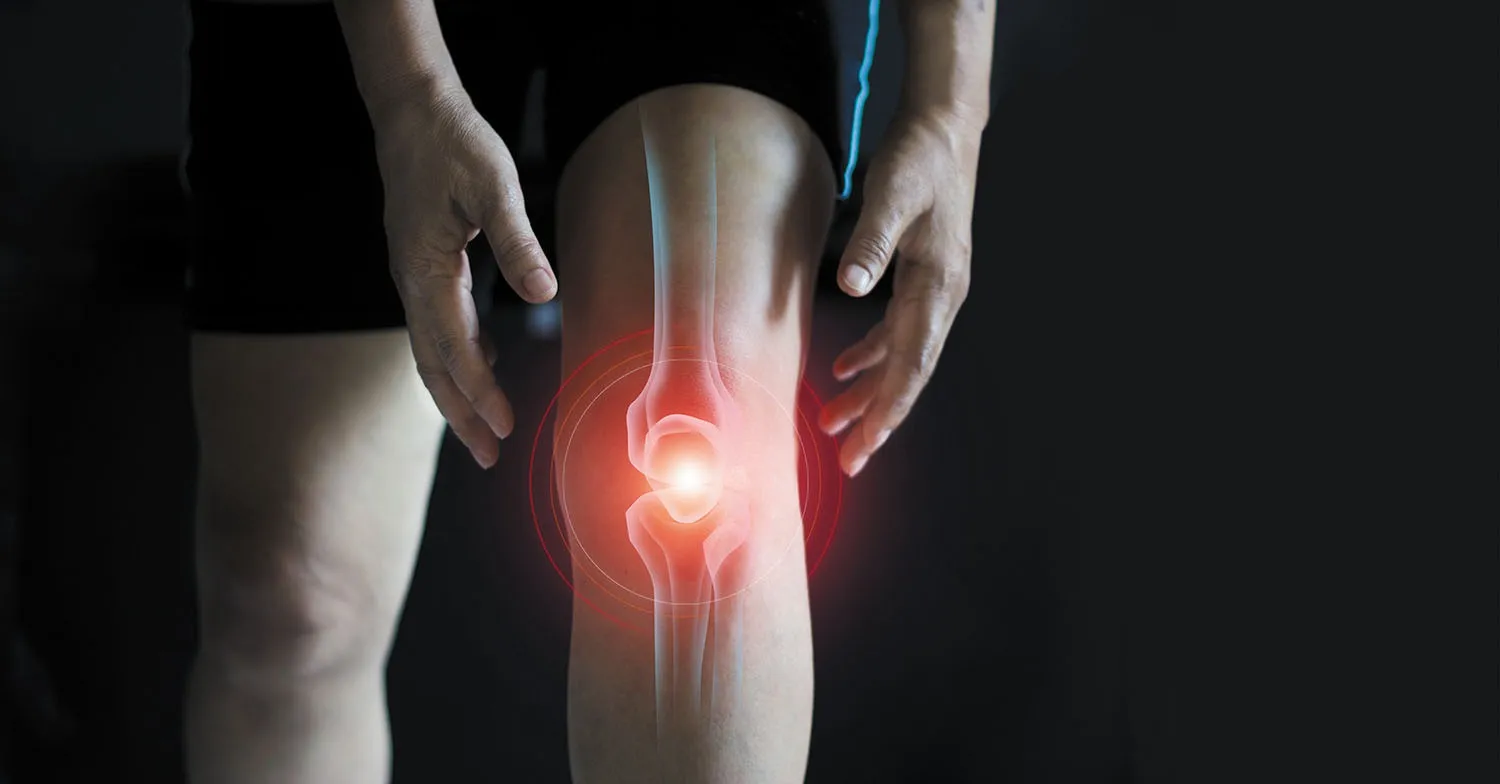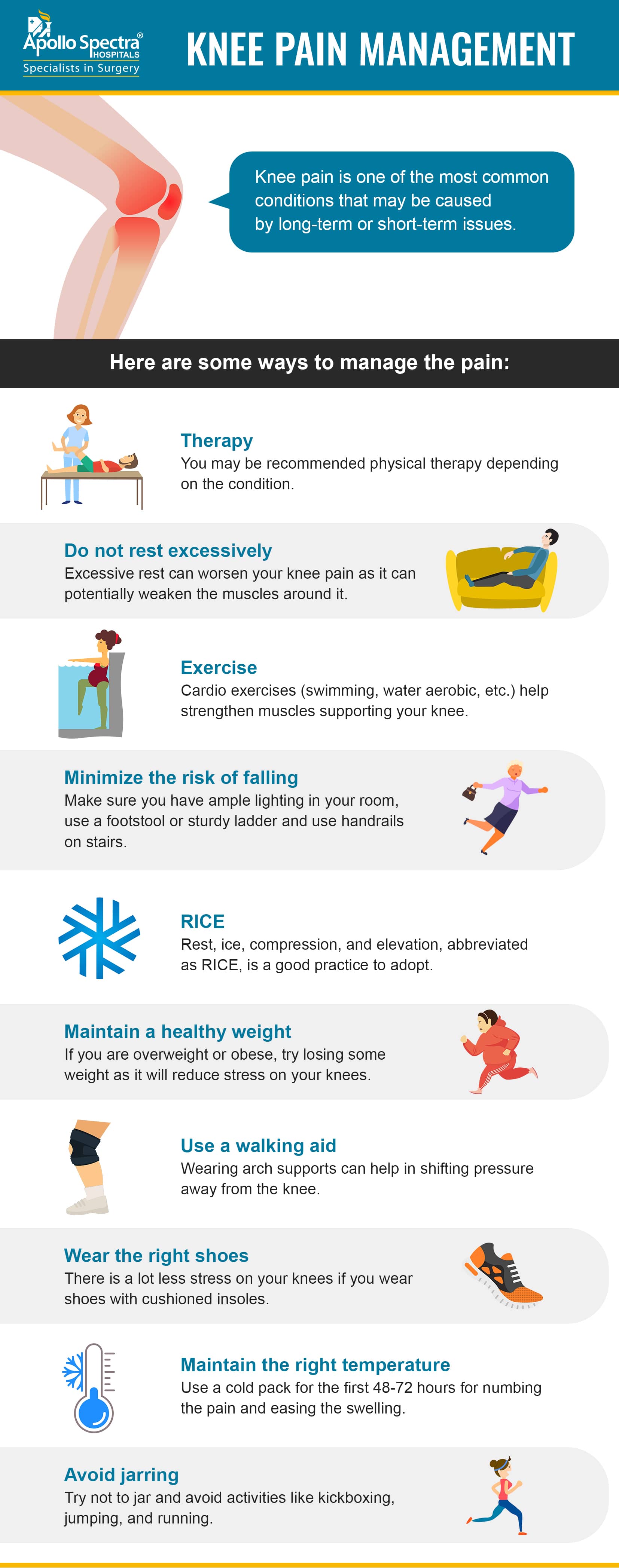Knee Pain Management
September 10, 2021
Knee Pain Management
Knee pain is one of the most common conditions that may be caused by long-term or short-term issues. If the pain is caused by a short-term problem, it usually doesn’t require any assistance from the pain specialists and you can recover on your own. However, in case of long-term knee pain, you may need some remedies for pain management and recover from the pain.
Whether you have had knee arthritis for a few years or a recent injury that is causing knee pain, there are many things you can do to manage the pain to a great extent.

Manage Knee Pain
Therapy
Your knee can become more stable if you strengthen the muscles around it. You may be recommended strengthening exercises or some sort of physical therapy depending on the condition that is causing the pain.
If you play sports or are simply more physically active, you may have to do exercises for correcting your movement patterns that might be impacting your knee. You will need to develop and maintain the right technique during your activity or sport. You should also perform exercises that improve your balance and flexibility.
Do not rest excessively
You may be tempted to rest when you are experiencing so much pain. However, excessive rest can worsen your knee pain as it can potentially weaken the muscles around it. Instead, you should try finding exercise programs that are safe for your knees and try sticking with it. Consult with your doctor or a physical therapist to know which movements are safe and how to do it the right way
Exercise
Cardio exercises are known to strengthen muscles supporting your knee and also help improve flexibility. Stretching and weight training does great as well! If you want to perform cardio, some great options include swimming, walking, water aerobics, elliptical machines, and stationary cycling. Another way to improve balance and ease stiffness is Tai chi.
Minimize the risk of falling
When you have an unstable or painful knee, you are more likely to fall, which can cause even more damage. Try to minimize the risk of falling. Make sure you have ample lighting in your room, use a footstool or sturdy ladder if you are reaching something from a higher shelf, and use handrails on stairs.
RICE
Rest, ice, compression, and elevation, abbreviated as RICE, is a good practice to adopt if your knee arthritis flares up or if a minor injury is causing knee pain. Take rest to relax your knee and wear a compression bandage. Keeping the knee elevated helps as well while applying ice can reduce swelling.
Maintain a healthy weight
If you are overweight or obese, try losing some weight as it will reduce stress on your knees. You don't’ necessarily have to lose excessive weight. Even small changes can make a significant difference.
Use a walking aid if the need arises
If you have osteoarthritis, wearing arch supports can help in shifting pressure away from the knee. These arch supports sometimes have wedges on one side of the heel. With certain conditions, you can use specific types of braces to support and protect your knee joint. Knee braces and splints can help you be more stable and a cane or a crutch helps to take the stress off your knee.
Wear the right shoes
There is a lot less stress on your knees if you wear shoes with cushioned insoles. If you have knee osteoarthritis, your doctor may recommend you to put special insoles in your shoes. Consult with your physical therapist to know which insole is appropriate for your condition.
Maintain the right temperature
When you have a knee injury, you should use a cold pack for the first 48-72 hours for numbing the pain and easing the swelling. A bag of frozen peas or ice works as well. Use it 3-4 times a day for 15-20 minutes. Make sure you are gentle to your skin and wrap the ice pack in a towel. After 2-3 days, you should use a warm towel, heating pad, or a warm bath to warm things up.
Avoid jarring
Your knee injury can become even more painful if you perform high-impact exercises. Try not to jar and avoid activities like kickboxing, jumping, and running. Exercises like deep squats and lunges also put excessive stress on your knees.
NOTICE BOARD
CONTACT US
CONTACT US
 Book Appointment
Book Appointment


.svg)
.svg)
.svg)
.svg)








